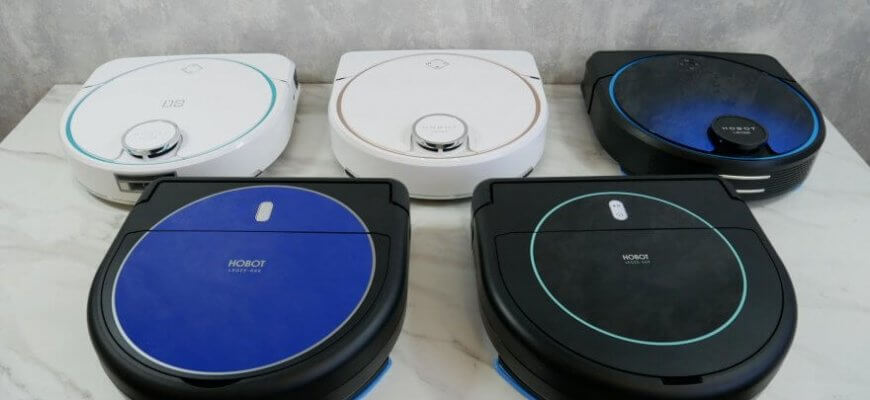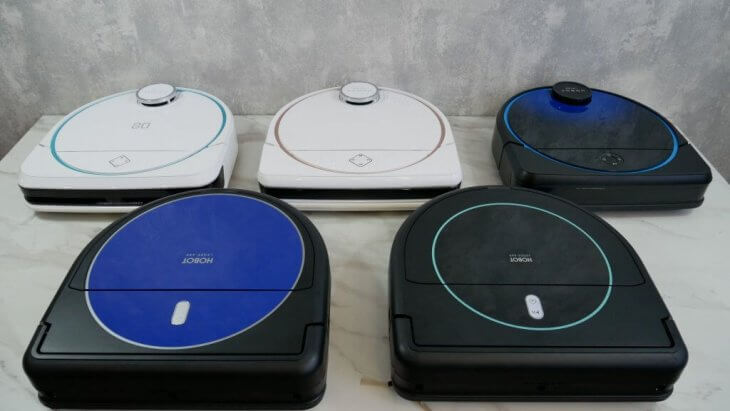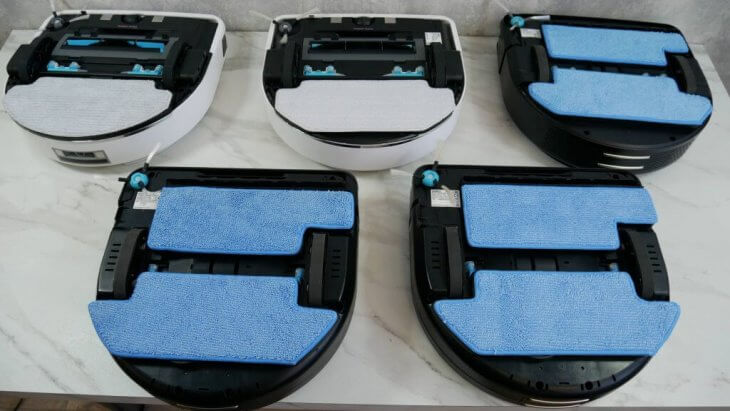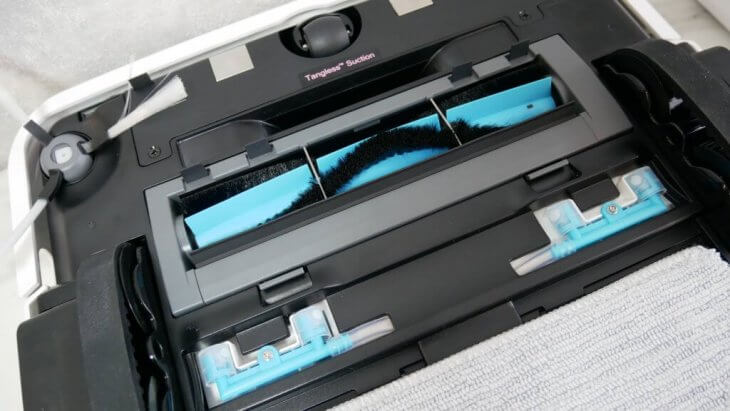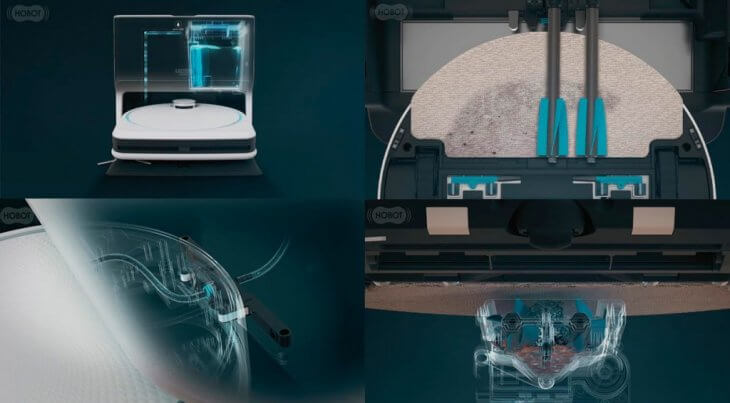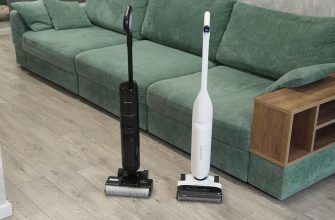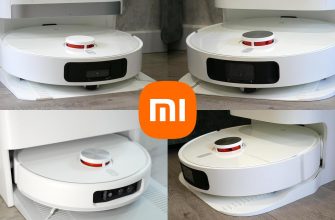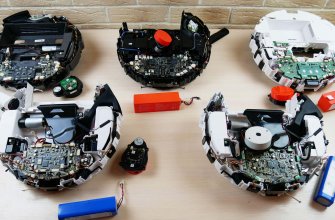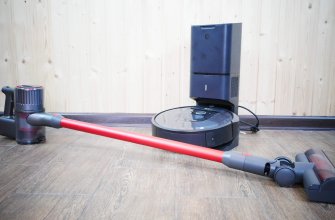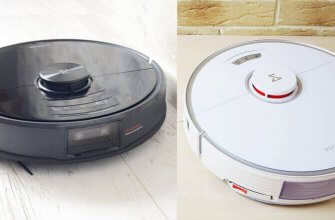Hey guys, welcome to RobotObzor! In this review we’ll compare some robots from the Hobot brand. Specifically, the new Hobot Legee D8 with the older D7, 7, 688, and even 669. These are all of the vacuums for sale that they offer. Ill compare their functions, major differences, and most importantly, their test results. Now let’s see, what’s actually different between them all, if we test them all equally. In the end, I’ll tell you which Hobot is the best in each category. Don’t forget to like and subscribe, and let’s get rolling!
Price
First and foremost, let’s compare their prices, so we can later see what we’re paying for. So the cheapest of the bunch, also being one of the first in the line- is Hobot Legee 669. To be exact, it was the second model, right after 668. It stands somewhere between $350-$380, depending on where you buy it from. A bit higher we have the 688 model – going for $400 in most stores. Hobot Legee 7 maxes out at $500. It’s about the same as Legee D7 – $480-$550. And the rookie D8 isn’t on the market right now, but according to the manufacturers, it’ll be around $600, which is totally fine, given what it’s capable of.
| Legee 669 | Legee 688 | Legee 7 | Legee D7 | Legee D8 |
| $350-$380 | Up to $400 | $480-$500 | Up to $550 | Up to $600 |
The Hobot line is in the middle segment price wise, and the price doesn’t differ much between older and newer models.
Build
Let’s compare the Hobot robot vacuums builds. What unites them is their D-shaped body, which helps them sweep the dirt from the corners.
But a more important difference is that the models 669 and 688 have laser sights on the bumpers, which help them move around. Because of this, these two models cant save their maps. Hobot Legee 7, D7 and D8 all have LIDAR’s, which brings them on a whole new level. You can see a noticeable difference in functions and in precision in movements. You’ll see everything in the tests, right now I just want to have an overview of their builds.
All robots from Legee have separate water and dirt tanks, located under the top lid. The capacity of the tanks is slightly different, which I’ll compare in the characteristics. The only thing I want to point out here is that the filtration system of these vacuums is based on a mesh and HEPA. Legee 7, D7 and D8 let you wash the HEPA filter with water. The D7 and D8 have a water tank that conveniently holds a tool for cleaning the robot. But the main difference between Hobot Legeee D8 and the earlier vacuums is the so-called ECO Compactor in the dirt container. It mechanically presses down the dirt, giving you up to 5 times more room for dirt. So you’ll clean it 5 times less. This is Hobot’s response to the self cleaning station, and is also a huge save on bags.
The cleaning modules don’t differ much. The 669, 688 and Legee 7 models have two moving platforms with wipes. In front of the front wipes is an attachment for collecting dirt, and between the platforms there are sprays for spraying the cleaning liquid on the floor.
Now, 669 and 688 have exactly the same cleaning module, and Legee 7’s only difference is the number of the sprayers: 4, not 2.
But of course, D7 and D8 have different cleaning modules. In them, we can see the addition of a central brush, which gets more dirt in the bin. The main highlight of the D-series is not the brush though, but dirt pre-collection before the central brush. So hair and fur are sucked straight into the dirt collector, and the brush picks up larger and heavier dirt. The technology protects the central brush from hair and fur, and it’s unique only to Hobots, being a patented solution on the market.
Both the D7 and D8 have 4 sprays behind the turbo brush to spray the detergent on the floor, just like the Legee 7, but only the wipe platform is the same for these robots. The two models lift up when they drive onto the carpet, but the D7 has a wipe platform that just presses to the floor and doesn’t vibrate, while the D8 has the same vibration mechanism that imitates a hand wiping the floor. What results is a kind of symbiosis between the previously released Legee 7 and Legee D7. In addition, the D8 has a major difference from all its predecessors – it’s compatible with the optionally available LuLu station, which will be available in the second half of 2023. This station rinses the wipe with clean water, removes dirt, automatically refills the tank in the robot with water, and dries the wipe with warm air after the cleaning cycle. A very cool addition that will give you less to deal with.
I put all of the differences into a chart, for your comfort in comparing how the Hobot robots are built:
| Legee 669 | Legee 688 | Legee 7 | Legee D7 | Legee D8 | |
| Navigation | Gyroscope + Lasers | Gyroscope + Lasers | Lidar | Lidar | Lidar |
| Dirt container | 500 ml (19.6 In.) | 500 ml (19.6 In.) | 500 ml (19.6 In.) | 500 ml (19.6 In.) | 500 ml (19.6 In.) |
| Water tank | 320 ml (12.5 In.) | 320 ml (12.5 In.) | 340 ml (13.3 In.) | 320 ml (12.5 In.) | 320 ml (12.5 In.) |
| Side brush | 1 | 1 | 1 | 1 | 1 |
| Central brush | No | No | No | Yes | Yes |
| Front attachment for getting hair and fur | Yes | Yes | Yes | Yes | Yes |
| Wipe platform | 2 pc (Moving) | 2 pc (Moving) | 2 pc (Moving) | 1 pc (Non-moving) | 1 pc (Moving) |
| Movements per minute | 600 | 600 | 900 | — | 1300 |
| Wipe lift on carpets | No | No | No | Yes | Yes |
| Amount of water sprays | 2 | 2 | 4 | 4 | 4 |
| Controls | Remote | Remote+app | App | App | App |
| Extras | Self-cleaning station wipes LuLu, Trash press ECO Compactor |
Technical features
And let’s get to the Hobot vacuum’s features right away:
| Legee 669 | Legee 688 | Legee 7 | Legee D7 | Legee D8 | |
| Battery | 2750 mA*h | 2750 mA*h | 4500 mA*h | 4900 mA*h | 4900 mA*h |
| Suction power | up to 1800 Pa | up to 2100 Pa | up to 2700 Pa | up to 2700 Pa | up to 5000 Pa |
| Work time | 80 min | 90 min | 140 min | 140 min | 140 min |
| Charging time | 150 min | 150 min | 200 min | 200 min | 200 min |
| Cleaning area | up to 60 sq.f. | up to 130 sq.f. | up to 240 sq.f. | up to 240 sq.f. | up to 240 sq.f. |
| Obstacle | 3 mm | 3 mm | 5 mm | 20 mm | 20 mm |
| Noise level | 63-64 dB | 64-67 dB | 61-71,5 dB | 62-72, dB | 62-73,7 dB |
I’d like to point out that I measured the volume myself. The actual suction power will be compared later in the tests.
Functions
Now let’s compare their functions. I’ll point out right away that Hobot Legee 669 and 688 have remotes, 688 also being controlled through the app. Legee 7, D7 and D8, on the other hand, are controlled through the app and buttons.
I put their main features in a table:
| Legee 669 | Legee 688 | Legee 7 | Legee D7 | Legee D8 | |
| Controls | Remote | Remote + App | App | App | App |
| Builds map in real time | No | Yes | Yes | Yes | Yes |
| Saves map | No | No | Yes | Yes | Yes |
| Zones map into rooms | No | No | Yes | Yes | Yes |
| Chose rooms for cleaning | No | No | Yes | Yes | Yes |
| Virtual walls and no-go zones | No | No | Yes | Yes | Yes |
| Creative voice commands | No | No | Yes | Yes | Yes |
| Cleans under curtains | No | No | Yes | Yes | Yes |
| User zones | No | No | No | Yes | Yes |
| Smart wipe wetting control based on floor temperature | No | Yes | Yes | Yes | Yes |
And so, here we can finally see the advantages of having a LIDAR for navigation, comparing them with laser sensors on the bumper. I think it’s very clear to see where your extra money is going.
Testing
And lastly, let’s compare the Hobot robots in real tests. I’ll do some generic tests that I do on the RobotObzor channel:
Navigation
As for navigation, Legee 669 can’t be controlled by the app, but its navigation is identical to the 688 model, so let’s take the result as the same. And here we see that robots with lidar clean up faster and don’t leave any dirty areas. The only difference was that Legee 7 didn’t drive over carpets, so part of the room was left dirty. D7 and D8, on the other hand, were able to go through the entire area, including driving over carpets, so there is actually a larger cleaning area. The cleaning speed of Legee 7, D7, and D8 is about the same, as is their movement.
Suction power
More interestingly, let’s check their suction power. So Legee 669 sucked dirt out of a 4mm (.15 In.) slot. The 688 model showed the same result, though to be honest, it did better in the actual test. Nevertheless, it counts. Legee 7 also sucked dirt out of a 4mm (.15 In.) deep slot. And it should be noted that for cleaning on hard surfaces this power will be more than enough. But Hobot Legee D7 can get down to the 10 mm (.39 In.) slot, doing the same as it did in its own review. This is a very good indicator and the robot is actually very powerful. D8, unfortunately, came up a little short and showed a result of 8 mm (.31 In.). This is also a very good value, but the reason why the D7 did better is that the D7 can switch the pre-suction before the brush, whereas the D8 cannot. And because it uses the vents simultaneously, D8’s total suction power is distributed while the D7 concentrates into one. In any case, the real suction power of D7 and D8 is very high and they are definitely suitable for carpet cleaning.
Vacuuming
As for dry cleaning, all of the robots did well, but here’s what I saw. 669, 688, and 7 all got some dirt on the front wipe, all because of static electricity,and the back wipe gets the floor clean. D7 and D8 have a more traditional way of cleaning, the central brush collects all of the dirt, and a wet wipe finishes the dirt. Note that all Hobots are good at getting the corner dirt
Carpet cleaning
Only Hobot Legee D7 and D8 can clean carpets, and they do it well. The other robots don’t go on them because of their poor off-road abilities, but it’s not like they need to.
Scrubbing dirt
When comparing light dirt wiping quality, the models with a movable cleaning module performed better, which are Legee 669, 688, 7 and D8. D7 isn’t bad either, as the wipe presses the floor, but it still leaves a small trace of dirt on the floor.
But D7 is definitely inferior to its Hobot Legee counterparts when it comes to scrubbing tough stains. We can see that all of the other robots did the job, thanks to the movable cleaning module. Legee D7, on the other hand, can slip through the tracks and stall in place, due to the back keeping it behind. The movable cleaning module helps to move out of the way if it gets a little stuck. With everyday use, it’s rare you’ll see this, but nevertheless you can see a clear advantage of the moveable platform. Going over dark spaces.
And the final test is going through dark spaces. Here’s what I found interesting, all 5 of the robots are scared of the black carpet, and see it as a cliff. But surprisingly, they aren’t scared of a flat black surface. For the test, I taped a black mat to the floor, and we can see the robots easily going over it.
Amazon: Hobot Legee 688
Opinion
Now that we’ve compared all of the Hobot robot vacuums, we can of course see that we are progressing, and that as we move further in the models, the engineers keep coming up with cool ways to make it as good as possible. First it was the switch from lasers to LIDAR, then a function for lifting the wipes, but the most important part of the Legee line as it turns out, is the vibrating platform. This is the brand’s strong suit, and i’m glad to see that they’ve brought it back to Hobot Legee D8.
All in all, the best Hobot vacuum in 2023 – is Hobot Legee D8, and it definitely shows, being a good vacuum and even a good scrub machine. Its like the engineers combined everything good in Legee 7 and D7 into one vacuum.
If you don’t have carpets and perfectly smooth floors, you can save and buy Legee 7. But here the optional LuLu station is far more important, which only supports D8. But if you don’t need it, you can save and buy Legee 7.
However, if you do have carpets, you need to choose between D7 and D8. The vacuuming quality is the same between them, although the mopping quality and the optional station makes D8 a better and more interesting choice. But if you’re not worried about that, then you can freely save and close your search on D7.
And the newer and cheaper models 669 and 688 are gonna be good only in smaller areas without carpets, or if the newer functions, possible thanks to the LIDAR, don’t catch your eye. For example, if you need to scrub off a stain in given room.
And let’s not forget that Hobot offers a full warranty for all of their robots, as well as a full shop service, including a company tech support team. You should also have no problems ordering parts and extra accessories on the company site.
I hope that this in depth review helped you see the difference between the Hobot robot vacuums, and which one fits you best. If you still have questions, feel free to ask them in the comments below. Have fun shopping, bye!

